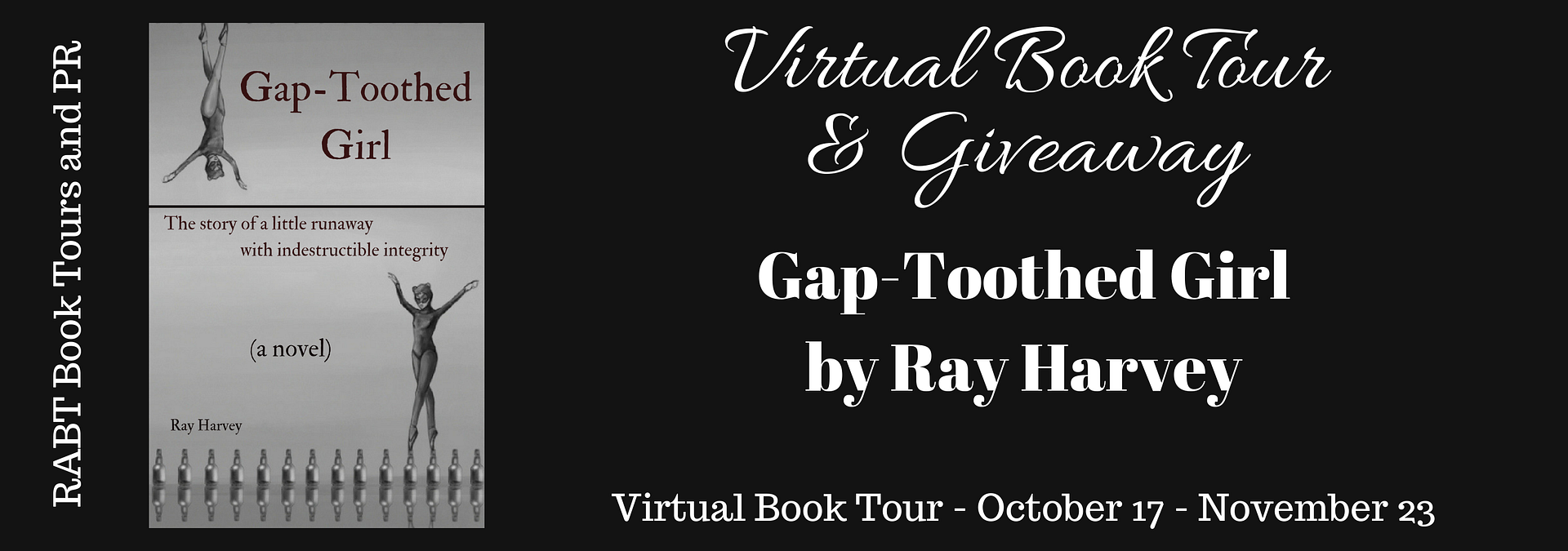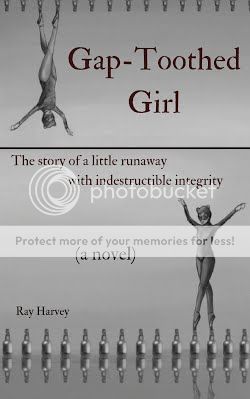Published: August 2018
“Tournament night in a sweltering Las Vegas stadium, and the girl with the gap-toothed smile stood bleeding in her ballet slippers.”
Thus begins Gap-Toothed Girl, the story of Dusty May, a Lakota orphan with an iron will, who runs away from the horrific circumstances of her foster home and her foster father — a man of beast-like brilliance and power — to pursue her dream of lightness and ballet, even as her foster father unleashes an army to bring her down.
Part literary fiction, part thriller, part dance story, Gap-Toothed Girl is at its core a tale of human joy and freedom of will — a “relentlessly paced novel” combining “the surreal imagery of Nabokov with the psychological complexity of Dostoevsky” (Fort Collins Forum) to investigate the depths of the human psyche and the indomitable will to succeed, ultimately plumbing the very nature of human happiness and the human soul.
GUEST POST
Suppose I were to tell you that you could become a better writer in a single week — would you believe me?
I wouldn’t either. And yet that’s precisely what I’m about to do.
And more: I’m about to make a believer out of you.
Here, then, are 10 stupendously simple ways to become a better writer in 7 days:
1. Think of a very basic story idea, preferably not your own ...
Then sit down at your desk or kitchen table with pen, paper, and stopwatch and -- here’s the most important thing -- without editing or stopping, write down that whole story. Write for 20 minutes per day every day until the story is finished. Please note and please drill into your head that it absolutely does not matter at this point if the story is original, good, well-written, or anything like that. This is purely concerned with the habit of sitting down and writing for 20 straight minutes. That’s all that matters here.
2. Read for a mere 5 minutes daily from grammar books
Don’t try to memorize what you read. Just read and pay attention to what you’re reading. I can guarantee you that after one week, no matter your level of grammatical sophistication, you’ll be amazed at how your thinking shifts in a good way.
Don’t try to memorize what you read. Just read and pay attention to what you’re reading. I can guarantee you that after one week, no matter your level of grammatical sophistication, you’ll be amazed at how your thinking shifts in a good way.
3. Learn one new word every day ...
And then use that word in your daily writing -- for instance, “Quiddity”!
4. Copy the style of the writers you admire
Don’t worry about plagiarism. Don’t worry about being over-derivative. This is merely an exercise -- and, I truly believe, this process is vital in developing your own voice.
5. Write down in a notebook 5 new ideas every day
At first, you may (or may not) find this challenging. But after two or three days, I predict a cascading effect, so that you soon have more ideas than you know what to do with.
6. Write a sweltering-hot sex scene
Yes, you read that right.
Growing up, you were probably taught, as I was, that sex is purely private -- which it is. But the work of the writer is to put down words in ways other people can’t, or won’t. Sometimes that means being breathtakingly honest, and sometimes it means broaching taboo subjects, like madness, suicide, beauty, and sex.
As my high-school English teacher once put it: if you wince at the notion of writing a steamy sex scene, how will you ever find the courage to address other more serious issues concerning the human heart?
7. Watch television shows or movies and think of ways you could strengthen their storyline
For this one, you needn’t write anything at all. Do it in your brain.
8. Rewrite paragraphs from books you admire
This is just an exercise, understand. Take one paragraph from a book you like or love, and then read and reread that paragraph. After that, close the book and rewrite what you’ve just reread.
9. Write a couplet every day for 7 days
This is easier than it might at first sound. You can write it out in your head. Don’t worry about syllable count or stylistic sophistication or anything like that. Simply try to capture some aspect of nature in a rhyming couplet. For instance, it being fall as I write this, I scribbled down the other day the following:
Deep dusk. Leaves fall soundlessly in the park.Rain fills the deer tracks in the dark.
10. Give a total stranger an authentic compliment
Not some silly “you-look-handsome-today” nonsense. Something real.
Because literature, as all true art, is about the authentic voice.
It’s about capturing something real.
It’s about real expression.
It’s about genuine emotion.
And this requires shedding your inhibitions.
So if you’re skeptical that my final suggestion here will help your writing, I challenge you to do this:
Approach a total stranger and pay him or her a spontaneous and honest compliment:
“I like your hat,” you might say. Or:
“It’s an awesome car!”
I promise you that if you do all these things for just one week’s time, your writing will not only improve: it will skyrocket.
It will improve stupendously.
About the author:
Ray A. Harvey, novelist, essayist, published poet, athlete, and editor, son of Firman Charles Harvey (RIP) and his wife Cecilia, youngest of thirteen half brothers and half sisters, was born and raised in the San Juan Mountains of southwestern Colorado. He’s worked as a short-order cook, copyeditor, construction laborer, crab fisherman, janitor, pedi-cab driver, bartender, and more. He’s also written and ghostwritten a number of published books, poems, and essays, but no matter where he’s gone or what he’s done to earn a living, literature and learning have always existed at the core of his life.


thanks for hosting
ReplyDeleteIt sounds so easy when reading this GP :)
ReplyDeleteMy compliment for today is for you, Mr. RH:
Great and useful GP, Thanks! (even if you are not quite a "total stranger" anymore, right?)
Sounds great.
ReplyDelete